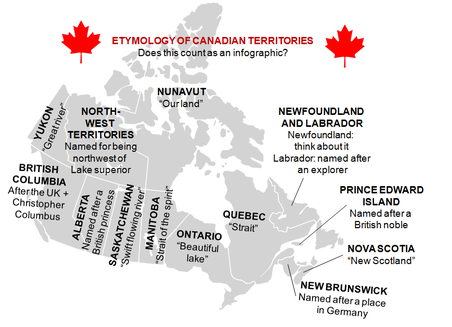|
Nunavut. The largest Canadian province, yet least dense in population. In the local Inuktitut (a language you may remember from kayak) tongue, it was all in lowercase and meant "our land". From there, nunavut can be split up into the root nuna, meaning "our", and the suffix -vut, which filled a role as a plural possessive just like our our. Nuna has cognates in basically all of the Eskimo-Aleut family, and goes back to Proto-Eskimo luna, also "land". -Vut undoubtedly is also from Proto-Eskimo. The point of this all, though, is to point out that Nunavut, though largely Inuit, is a Canadian territory, so it's not really that of the Inuit people anymore. Irony strikes through etymology. Since negotiations to create Nunavut only started in 1976, usage of the name has increased since the 1940s.
0 Comments
Your comment will be posted after it is approved.
Leave a Reply. |
AUTHORHello! I'm Adam Aleksic. I have a linguistics degree from Harvard University, where I co-founded the Harvard Undergraduate Linguistics Society and wrote my thesis on Serbo-Croatian language policy. In addition to etymology, I also really enjoy traveling, trivia, philosophy, board games, conlanging, and art history.
Archives
December 2023
TAGS |



